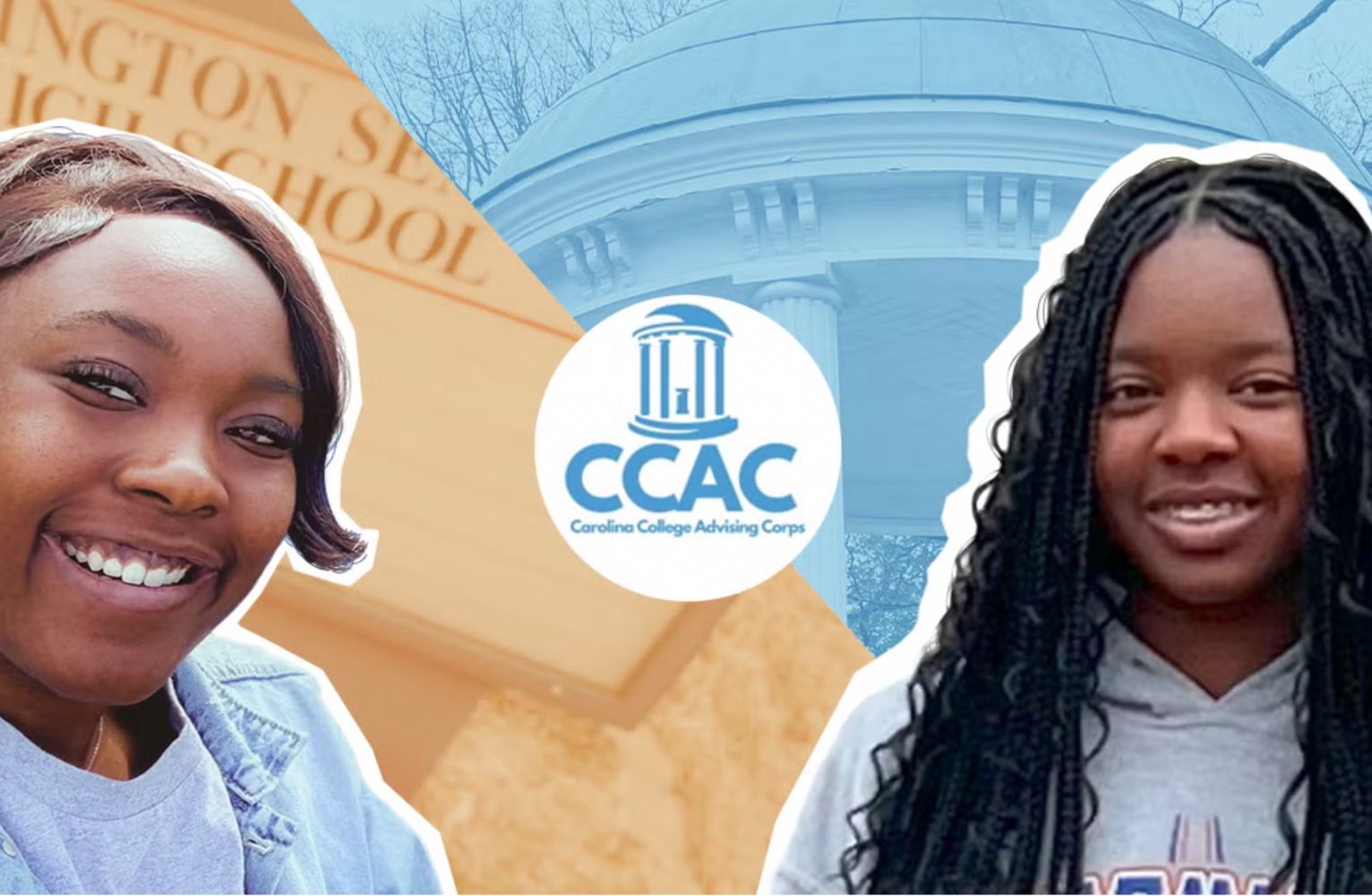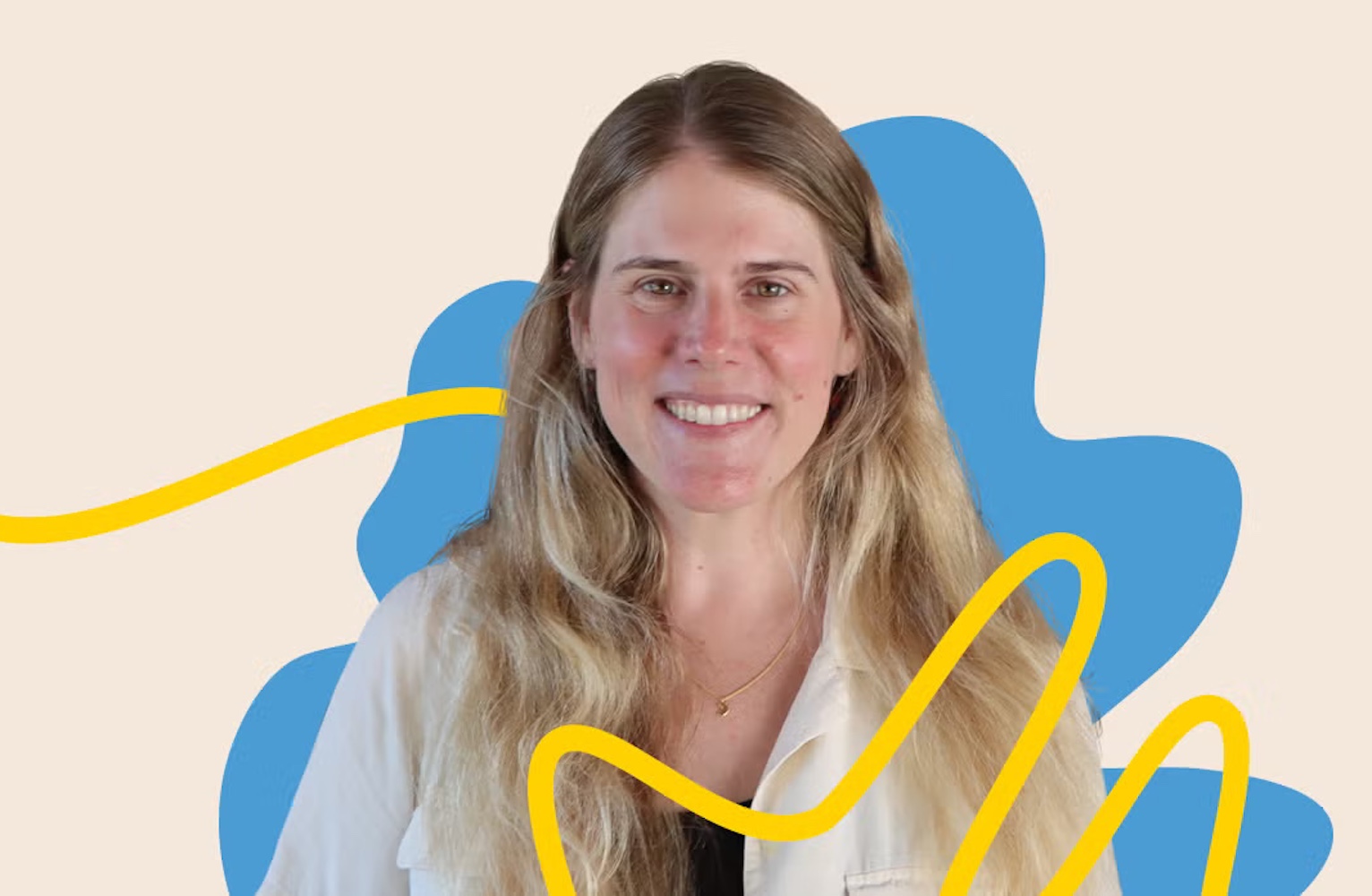
Jarrah Faye ’23 (left) works with students in Davidson County to figure out their post-high school plans. At Lexington High School, she crossed paths last school year with Naima Nelson ’28 (right). (Submitted photos; graphic by Gillie Sibrian/UNC-Chapel Hill)
When Naima Nelson learned she was accepted into UNC-Chapel Hill, the news was exciting not only for her and her family but also for her college adviser at Lexington High School in Davidson County, about 80 miles west of Chapel Hill.
Jarrah Faye ’23 of the Carolina College Advising Corps gave Nelson application advice, shared information about her experience with the Carolina Covenant program — Nelson is now also a Covenant Scholar — and offered insights on college life to the future Tar Heel.
“I felt like there was more of a connection since there were similar interests, and the age range was right there,” said Nelson ’28, now a first-year biology major interested in exploring dentistry.
Faye, whose hometown of High Point is a 25-minute drive from Lexington, feels at home with the students she serves at Lexington High and nearby Thomasville High School. “I know this area pretty well,” said Faye, who will enter law school this fall.
CCAC, run by Carolina’s enrollment division, has a mission to help low-income, first-generation and underserved North Carolina high school students attend college. Although Nelson isn’t a first-generation student, her relationship with Faye shows how CCAC is helpful to all students in underserved school districts.
The program places advisers close in age to the students they work with in schools across the state to build a college-going culture and help each person find a college that best fits their needs.
Launched in 2007 with four advisers at eight schools, CCAC now employs 65 advisers serving 81 partner high schools in 34 counties. Faye is among the 330-plus advisers to serve since CCAC began.
Before beginning their work, these advisers went through a four-week summer training at UNC-Chapel Hill to learn about the program’s history and gain skills on FAFSA support, event planning, working with students and integrating themselves into their communities.
What are Faye’s job duties? “Any way that I can support the students,” she said.
This ranges from helping with application essays and creating databases of scholarships to sorting through financial aid and providing social support. The advisers work with students to figure out what’s next for them, whether that’s a four-year university, community college, trade school or the military.
“It’s their lives. I want to make sure they’re going somewhere they’re happy,” Faye said. “Even if that’s calling my friend on the phone to be like, ‘Hey, tell her how you like UNC Greensboro,’ or something like that.”
CCAC advisers across the state — from Polk County in western North Carolina to Dare County on the Outer Banks — have the same goal. During the 2023-24 school year, they conducted one-on-one meetings with over 13,000 students, and 9,201 students they worked with submitted at least one college application.
Nelson was in that number. She long knew she would apply to Carolina. “I have always been a Tar Heel,” Nelson said. “My visits to campus sealed the deal when I realized that I had been accepted.”
Throughout the application process, Nelson received tremendous support from her mother, who met with Faye at the start of senior year to get a head start on the application process. In her essay, Nelson wrote about how she hopes being a junior marshal can inspire her younger brother. She also wrote about her late grandmother, whose memory continues to motivate her to achieve her goals.
For Faye, it’s always rewarding to see a student she works with successfully plan for their future. It’s extra sweet when that future takes them to her alma mater.
“Just how highly people here at this high school spoke of her, I could already tell that she would be an amazing candidate for UNC-Chapel Hill,” Faye said.
By Brennan Doherty ’19, University Communications
Related Stories




